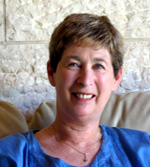|
By Dorothea Shefer-Vanson
 MEVASSERET ZION, Israel—One Friday morning I joined my husband on a trip to Haifa to meet others like him whose parents were originally from a place called Chortkov. Unlike myself and many others, my better half has never paid much attention to his family history, and it was more because of my insistence than his own interest that he agreed to attend the meeting. MEVASSERET ZION, Israel—One Friday morning I joined my husband on a trip to Haifa to meet others like him whose parents were originally from a place called Chortkov. Unlike myself and many others, my better half has never paid much attention to his family history, and it was more because of my insistence than his own interest that he agreed to attend the meeting.
Chortkov, which before WWII was by turns Polish, Ukrainian and Russian, was once home to a thriving Jewish community of about 7,000. Relations with the local population were good, and the Jews prospered, working as traders, merchants, cattle-dealers, etc.
The history of the Jews of the area, also known as Galicia, is mundane in its wretchedness. The Germans invaded, the Jews were herded into ghettoes and eventually murdered, either on the spot or after being deported to one of the nearby concentration camps, notably Belzec. Needless to say, the local population cooperated with the Nazis in murdering their former neighbours.
The area is also distinguished by the very small proportion of its Jews—only about 2 percent—who survived. Some went into hiding, and a handful escaped to the forest and became partisans. My late parents-in-law had left in 1934 for the Land of Israel, having been granted ‘certificates’ as pioneers because they were members of a Zionist youth movement and had been on a training farm.
But the descendants of that handful of survivors hold fast to what remains of their heritage. Led by Neri and Martha, two energetic woman in their seventies, the group meets regularly once a year to remember something that most of them never knew, to share information about what happened and, most importantly, to try and discover more about their own ancestors.
|
|
At one point during the meeting a young man approached our table and thrust a piece of paper into my hand. “This is a photograph of my grandparents, Shlomo Shachner and Etti Frisch, on their wedding day,” he said. “My father died thirty years ago and never told me anything about his family. If you or anyone has any information about him, please let me know.” I watched him approach everyone there and repeat the same message. I didn’t have the heart to tell him that my connection with Chortkov was tenuous in the extreme.
Time and again I heard people bemoan the fact that they had not asked their parents about life before the war. In Israel when most of them were growing up parents were preoccupied with earning a living and children did not want to be reminded of their ‘diaspora’ past. Besides, the general ethos in Israel was that of building a new country and focusing on the future rather than dwelling on the past.
About a hundred people from the second, third and fourth generations, turned up for the meeting, each one having paid in advance for the privilege. Memorial candles were placed on the tables which had been laid for the lunch which was to follow. At one point in the memorial ceremony everyone was asked to light the candles on their table.
Neri gave a short speech about Chortkov and its history, several members of the organizing committee read out accounts of the exploits of the local Jewish partisans, most of whom perished, and someone read aloud the verses from Ezekiel describing the vision of the dry bones. “This is exactly our story here in Israel,” he said as he concluded, his voice choked with emotion.
We all sang the Hebrew version of the Partisans’ Song and ‘Hatikva.’ Then it was time to eat, because no Jewish event is complete without a meal.
|
|

